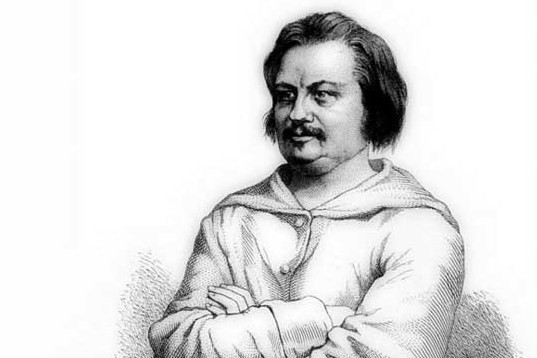Introduction
Exploring French Literary Masterpieces: Balzac To Camus One of the world’s most lasting and significant literary traditions is French literature. French writers have influenced not just the literary canon but also the intellectual, philosophical, and cultural landscape, from the classical works of the 17th century to the groundbreaking works of the 20th century. From the meticulous realism of the 19th century to the existential investigations of the 20th century, the years between Honoré de Balzac and Albert Camus constitute a pivotal period in French literature. These writers had a significant impact on world literature in addition to French literary history.
Many people consider Honoré de Balzac to be one of the most significant novelists of the 19th century since he established the foundation for contemporary French realism. His colossal series, La Comédie Humaine, painted a comprehensive picture of post-Napoleonic French society by delving into the lives, aspirations, and wants of a diverse cast of characters. The realism novel evolved as a result of Balzac’s painstaking attention to individual psychology and social structure, which served as a model for other novelists worldwide.
French literature changed over the centuries in reaction to intellectual, social, and political shifts. The interior landscapes of human consciousness and the intricacies of personal identity were examined in the writings of André Gide and Marcel Proust. While Gide’s moral explorations in books like The Immoralist challenged social mores and examined issues of sexual freedom and the pursuit of authenticity, Proust’s In Search of Lost Time is still regarded as one of the greatest literary works ever written.
Existentialism and absurdism gained popularity in the 20th century, led by writers like Albert Camus and Jean-Paul Sartre. Deep insights into the human condition are provided by Camus’s The Stranger and The Myth of Sisyphus, which highlight the folly of life and the pursuit of meaning in an apparently meaningless universe.
1. Honoré de Balzac: Master of Realism
Honoré de Balzac’s influence on French literature cannot be overstated. His magnum opus, La Comédie Humaine, is a series of over ninety interconnected novels and short stories that span several decades and offer a sweeping portrayal of French society in the early 19th century. Balzac’s work was revolutionary because it moved away from the romantic idealism of earlier writers and instead focused on realism—an attempt to represent life in all its complexity, with all its contradictions and imperfections.
Balzac’s novels, including Eugénie Grandet, Lost Illusions, and The Country Doctor, depict the lives of ordinary men and women struggling with ambition, love, greed, and power. He explored themes of social class, wealth, and the human desire to succeed at any cost. His characters are often defined by their struggles to balance their personal aspirations with the moral dilemmas that accompany them. Balzac’s depiction of the French bourgeoisie, in particular, provides a detailed map of a society in transition, as France moved from the Napoleonic Empire to the Restoration.
Read more
In addition to his meticulous attention to social dynamics, Balzac’s understanding of human psychology is profound. His characters are multi-dimensional and their internal conflicts—between ambition and morality, love and desire, tradition and change—echo throughout his work. Through La Comédie Humaine, Balzac not only gave us a portrait of his time but also laid the groundwork for future realist writers, both in France and abroad.

2. Marcel Proust: The Inner Workings of Time and Memory
Exploring French Literary Masterpieces: Balzac To Camus Marcel Proust’s In Search of Lost Time (also known as Remembrance of Things Past) is one of the towering achievements of French literature and one of the longest novels ever written. Spanning seven volumes, this monumental work explores themes of memory, time, and identity, as the narrator, often assumed to be based on Proust himself, reflects on his experiences in society, love, and art.
Proust’s innovative use of stream-of-consciousness narrative, in which the flow of thought and memory becomes central to the novel’s structure, was revolutionary. Through the lens of memory, Proust delves deep into the complexity of human experience, exploring how the past shapes our present identities and how time erodes the clarity of memory. His famous madeleine scene, where the narrator dips a madeleine into tea and is flooded with memories of his childhood, is one of the most iconic moments in literary history.
Exploring French Literary Masterpieces: Balzac To Camus At its core, Proust’s work is about the passage of time and the search for meaning in a world that is constantly changing. His exploration of the fragility of memory and the tension between reality and perception has influenced countless writers and philosophers. In Search of Lost Time is both a deeply personal meditation on the self and an exploration of universal themes of love, jealousy, and the longing for lost moments.
3. André Gide: Questioning Morality and Self-Authenticity
Exploring French Literary Masterpieces: Balzac To Camus André Gide was a key figure in French literature and a prominent member of the Symbolist and modernist movements. His works often challenge traditional moral and social norms, exploring the tension between individual desires and societal expectations.
Gide’s most famous work, The Immoralist, tells the story of a man who rejects societal conventions in favor of pursuing a life of personal freedom and authenticity. The protagonist’s journey toward self-discovery, however, comes at great personal cost, and the novel raises critical questions about the limits of freedom and the morality of self-interest.
Gide’s other major work, The Counterfeiters, examines the lives of a group of young people who struggle with issues of authenticity, self-deception, and moral ambiguity. Through this novel, Gide explores the complexities of identity and the ways in which individuals can deceive themselves and others in their search for meaning and truth.
Exploring French Literary Masterpieces: Balzac To Camus Gide’s exploration of sexuality, moral relativism, and the search for personal freedom continues to influence writers today. His works continue to raise questions about the tensions between individualism and social responsibility, making them as relevant in the 21st century as they were when first published.
4. Albert Camus: Existentialism and the Absurd
Albert Camus is perhaps best known for his contributions to existentialism and absurdism, philosophical movements that explore the meaning—or lack thereof—of human existence. His most famous works, The Stranger and The Myth of Sisyphus, explore themes of alienation, existential doubt, and the search for meaning in a world devoid of inherent purpose.
Exploring French Literary Masterpieces: Balzac To Camus The Stranger tells the story of Meursault, a detached and emotionally indifferent man who is implicated in a murder. Through Meursault’s apathy and his refusal to conform to societal expectations, Camus challenges conventional notions of morality and social order. The novel is a meditation on the absurdity of life and the idea that existence is inherently meaningless, yet humans continue to search for meaning and purpose.
Read more
In The Myth of Sisyphus, Camus further elaborates on his concept of the absurd, arguing that life’s lack of inherent meaning does not negate the possibility of living a full and engaged life. The figure of Sisyphus, condemned to roll a boulder up a hill for eternity, becomes a metaphor for the human struggle to find meaning in an indifferent universe. Camus argues that the only true rebellion against the absurd is to embrace life fully, despite its inherent meaninglessness.
Exploring French Literary Masterpieces: Balzac To Camus Through works like The Stranger and The Myth of Sisyphus, Camus challenged conventional beliefs and offered readers a new framework for understanding the human condition. His exploration of the absurd continues to resonate with modern readers, particularly those grappling with existential questions in a rapidly changing world.
Conclusion
Exploring French Literary Masterpieces: Balzac To Camus From Albert Camus’ existentialist to Honoré de Balzac’s realism, French literature has been essential in influencing intellectual ideas and world narratives.
These authors’ writings, among others, have examined the intricacies of morality, society, and human nature, providing deep understanding of both the individual and the social experience. In addition to influencing generations of French readers, their contributions to the literary canon have inspired literature around the world.
Readers all across the world are still enthralled by French literature because of its profound philosophical depth and emotional relevance. A little portion of the extensive and illustrious legacy of French literary achievement is represented by the writers examined in this article.
Exploring French Literary Masterpieces: Balzac To Camus French literature provides everlasting truths about the human condition, whether through the existential insights of Camus, the moral questioning of Gide, the introspective beauty of Proust, or the social realism of Balzac. The legacy of French literature is still as important now as it has been for centuries because of these works, which never cease to inspire, question, and provoke.
Read more
FAQ
1. What makes French literature so influential?
French literature is influential because of its deep philosophical, intellectual, and cultural contributions to global thought. Writers like Balzac, Proust, and Camus have examined the complexities of human existence, society, and morality in ways that have resonated with readers across different cultures. French literature has consistently pushed the boundaries of storytelling and offered new ways of thinking about identity, time, and meaning.
2. How did Balzac influence modern literature?
Balzac’s La Comédie Humaine laid the foundation for modern realism in literature. His detailed depiction of French society, along with his complex characters, influenced the development of the realist novel and inspired later writers such as Flaubert and Zola. His exploration of human psychology and social dynamics remains relevant in contemporary literature.
3. What is the significance of Proust’s In Search of Lost Time?
Proust’s In Search of Lost Time is one of the most important works in modern literature. It delves deeply into memory, time, and human consciousness, offering a groundbreaking narrative style that incorporates stream-of-consciousness techniques. Its exploration of the past and how it shapes our identity continues to influence writers and thinkers today.
4. How did Camus contribute to existentialism?
Camus’s exploration of the absurd, particularly in works like The Stranger and The Myth of Sisyphus, contributed significantly to existential philosophy. He argued that life’s inherent lack of meaning does not preclude the possibility of living authentically and with passion. His ideas about the absurd continue to shape philosophical and literary discussions on the meaning of life.
5. What themes are common in the works of Gide and Camus?
Both André Gide and Albert Camus explore themes of morality, authenticity, and the search for meaning. While Gide questioned conventional morality and the pursuit of personal freedom, Camus focused on the absurdity of existence and the rebellion against life’s meaninglessness. Both authors challenge traditional societal norms and offer complex portrayals of the human condition.
Read more















